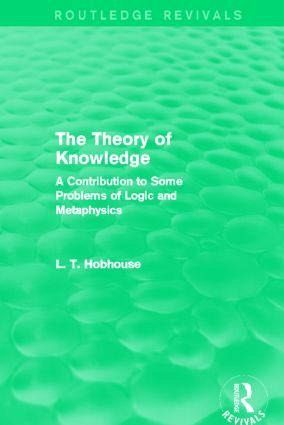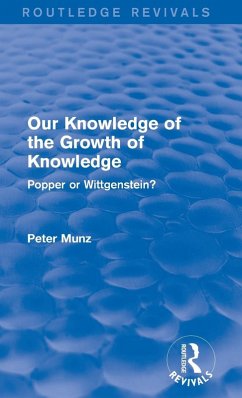
The Theory of Knowledge (Routledge Revivals)
A Contribution to Some Problems of Logic and Metaphysics

PAYBACK Punkte
37 °P sammeln!
L. T. Hobhouse (1864-1929) was fundamental to the New Liberal movement of the late nineteenth and early twentieth century. He authored many important works in the fields of philosophy, economics and social liberalism. First published in 1896, The Theory of Knowledge considers the content and validity of knowledge, and the conditions on which our understanding of knowledge is based. It is a rich and important classic, which remains of value to students and academics with an interest in sociology, anthropology and the philosophy of logic.














